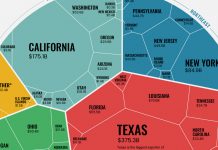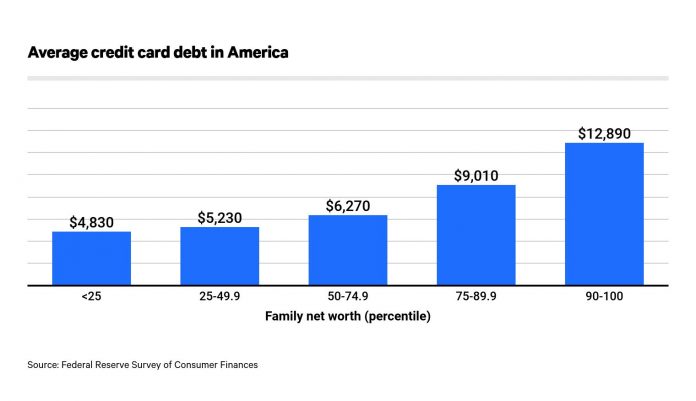With regards to Visa bills, numerous Americans are behaving as well as possible.
As per the Federal Reserve System, the wrongdoing rate for Visa charges something like 30 days past due remained at a generally low 1.89% in the principal quarter of 2021. The most noteworthy 30-day misconduct rate at any point recorded for charge cards was 6.77% in the second quarter of 2009, close to the last part of the Great Recession.1
Information from the Federal Reserve Bank of New York recounts an alternate story for individuals with charge card charges somewhere around 90 days past due.2
In the primary quarter of 2021, the 90-day misconduct rate was 9.98%, contrasted and 9.09% simultaneously in 2020, as per the Federal Reserve Bank of New York. All in all, wrongdoings of 90 days or all the more really went up during the pandemic.
Those figures, notwithstanding, miss the mark regarding the 90-day-or-more Mastercard misconduct rates in the midst of a large part of the Great Recession and surprisingly in its repercussions. During all of 2010, the primary entire year after the Great Recession, the quarterly 90-day wrongdoing rate surpassed 13%.
Figures from the Federal Reserve Bank of New York likewise show which age bunches are in all likelihood and to the least extent liable to head into 90-day-or-more misconduct an area with their credit cards.2
In the primary quarter of 2021, Americans age 18 to 29 had 9.63% of their Mastercard adjusts floating toward 90-day wrongdoing. That was the most noteworthy rate for any age bunch. The most minimal rate in the principal quarter of 2021 was 3.71% for those matured 60 to 69.
Card misconduct rates in the pandemic
The COVID-19 pandemic set off what could be named the Great Debt Cutback.
As indicated by the Consumer Financial Protection Bureau, Americans who recently had and experienced not run into difficulty taking care of bills over covering costs cut their charge card obligation during the pandemic.3
For the individuals who had not experienced bill or cost troubles before the pandemic, charge card obligation fell 13.6% from February to June 2020.
Among the individuals who had encountered troubles, the rate was considerably more prominent (17%).
In the meantime, thanks in huge part to government boost checks and family belt-fixing, the 30-day Visa wrongdoing rate dropped during the pandemic.
It arrived at 1.89% in the main quarter of 2021, approximately one year after the beginning of the COVID-19 pandemic in the U.S. That is the least rate since the Federal Reserve System began following Mastercard wrongdoing information in 1991.
On the other hand, the rate was 2.7% in the main quarter of 2020 and 2.54% during a similar period in 2019.
However, as information from the Federal Reserve Bank of New York shows, longer-term misconducts have been pestering Americans during the pandemic.2
During all of 2020 and into the principal quarter of 2021, the 90-day wrongdoing rate was more than 9%. By correlation, a similar rate never went past 8.32% all through 2019. The year prior, the rate didn’t surpass 8.01%.
Optimistically speaking, the Fed’s information shows the level of balances streaming into genuine misconduct diminished from the principal quarter of 2020 to Q1 2021 for all advanced sorts, including Visas.
Mastercard wrongdoing rates by age bunch
Among all age gatherings, 3.78% of Mastercard adjusts were crawling toward 90-day-or-more wrongdoing in the primary quarter of 2021, the Federal Reserve Bank of New York says.2 But the rates change generally among the country’s age gatherings:
18-29 – 5.12%
30-39 – 4.51%
40-49 – 3.98%
50-59 – 3.43%
60-69 – 2.94%
70 or more – 3.77%
These numbers show that the more established somebody is, the more outlandish they are to veer toward 90-day-or-more misconducts for Visa bills – with the eminent special case of those 70 and over.

Assortment offices and misconduct rates
Assortment offices work in the interest of loan specialists and outsider obligation gatherers to recover past-due obligations. However, fewer individuals are getting calls from gatherers. That has been particularly obvious during the pandemic.
In the principal quarter of 2021, only 7.38% of customers had at least one obligation in assortments, as indicated by the Federal Reserve Bank of New York.2 That’s the most minimal rate since somewhere around 2003. All through all of 2020 and into the primary quarter of 2021, that rate never went above 8.93%. For examination, a similar figure was 9.2% in the main quarter of 2019 and 14.64% in the primary quarter of 2013.
In 2020 and into mid-2021, the normal sum owed added up to more than $1,400. That contrasts and more than $1,500 during different quarters in the post-Great Recession long periods of 2012, 2013 and 2014.2
A few examinations additionally show that Visa obligation may not be the authorities’ first concern.
In 2016, Visa obligation made up 1% of complete obligation gathered, the Association of Credit and Collection Professionals reports, with medical care obligation making up 46.8% of the assortments, trailed by educational loan obligation at 21.2%.4
In a 2021 report, the U.S. Shopper Financial Protection Bureau detailed that obligation assortment made up 15% of all objections got in 2020.5
Visa wrongdoing outcomes
Visa wrongdoing – a bill that is something like 30 days past due – can have desperate ramifications for customers, especially if the obligation goes neglected for a while. Among them are:
Harmed credit. Buyers who become delinquent on one obligation are 36% to 64% bound to have a subprime FICO rating in three years and 33% to 56% bound to have one more misconduct in three years, as indicated by a 2019 report from the Urban Institute.6 Consumers who become delinquent on somewhere around two obligations are 77% to 112% bound to have a subprime FICO rating and 45% to 69% bound to have one more wrongdoing in three years.
Shut record. On the off chance that your Mastercard bill is in excess of a couple of months delinquent, the card guarantor might close your record.
The obligation in assortments. Following a couple of months, a Visa backer may give your obligation to an obligation assortment office. The organization might attempt to recuperate your obligation for the benefit of the card backer or even subsequent to purchasing your obligation from the card guarantor.
Pay garnishment. A Mastercard guarantor or obligation authority may trim or take, a portion of your wages to recuperate your late obligation.
Liquidation. One powerful charge card obligation or a few obligations that are truly late could constrain you to declare financial insolvency. A liquidation stays on your credit report for seven or 10 years, contingent upon the sort of insolvency case.
Customers who become delinquent on obligations are bound to have subprime financial assessments and bound to have one more wrongdoing in three years.
The most effective method to stay away from charge card wrongdoing
Since you realize what can occur if a Visa misconduct heads into the peril zone, how would you be able to deal with stay away from it? Here are four hints.
Set up autopay so that you’re never late in making a Visa installment.
Pay your charge card adjusts in full each month. This not just keeps your charge card accounts on favorable terms yet additionally implies you pay no late expenses or interest.
Make a spending plan and stick to it. A spending plan can help forestall overspending. Spending too far in the red can prompt wrongdoings in case you’re inclining too intensely on Visas to cover ordinary costs.
Build up a secret stash. Specialists for the most part suggest that a secret stash contains sufficient cash to deal with three to a half years of everyday costs. This asset can be a lifeline in case you’re hit with unexpected costs, similar to significant vehicle fixes or a long emergency clinic stay, and may save you from piling up past due Visa unpaid liability.





































